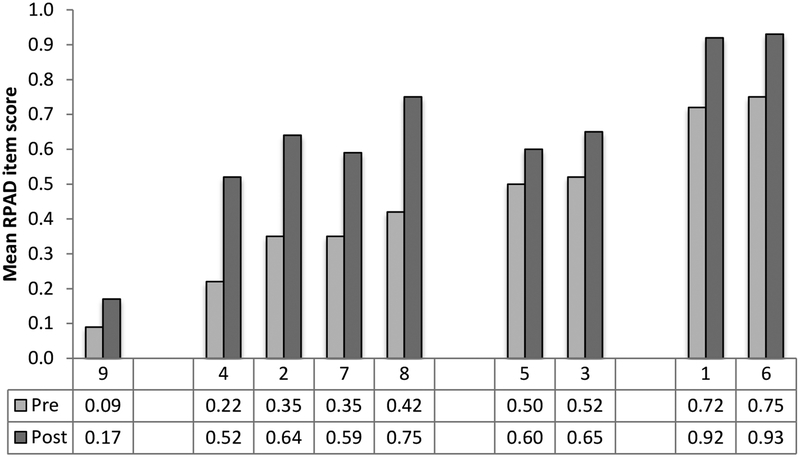Figure 2.
Patient Engagement Project (PEP) Study pre- and postintervention scores. The PEP educational intervention was delivered at pediatric and medicine services at Stanford University and the University of California, San Francisco between November 2014 and January 2015. The pre- and postintervention periods were August to November 2014 and December 2014 to April 2015. Overall, mean item-level scores improved on all 9 behaviors of the Rochester Participatory Decision-Making Scale (RPAD) between the pre- and postintervention periods. RPAD item definitions23: 9 = Physician checks his/her understanding of patient’s point of view; 4 = Examine barriers to follow-through with treatment plan; 2 = Discussion of the uncertainties associated with the situation; 7 = Physician asks, “Any questions?”; 8 = Physician asks open-ended questions; 5 = Physician gives patient opportunity to ask questions and checks patient’s understanding of treatment plan; 3 = Clarification of agreement; 1 = Explain the clinical issue or nature of the decision; and 6 = Physician’s medical language matches patient’s level of understanding.

